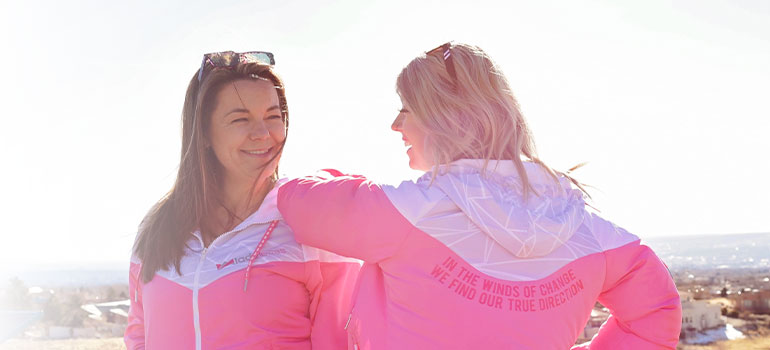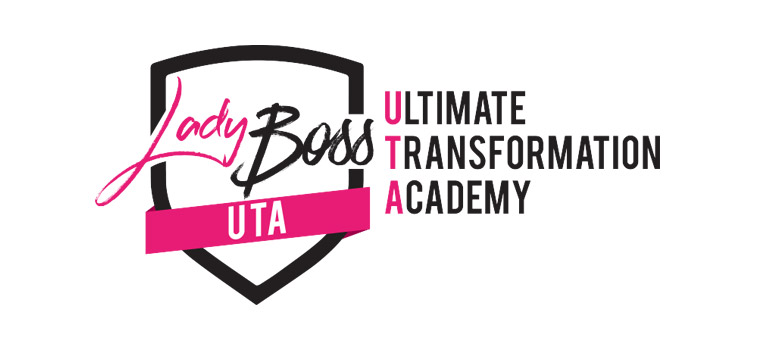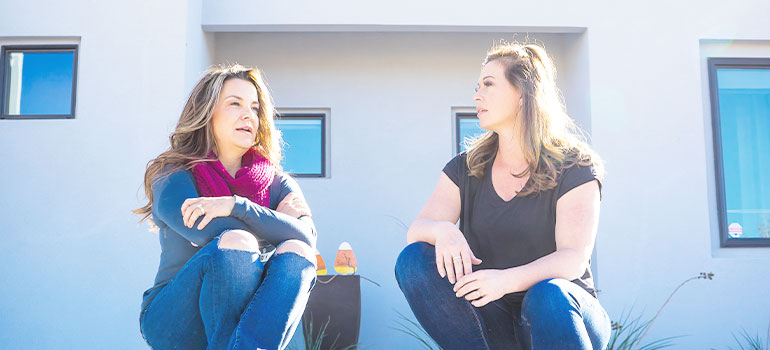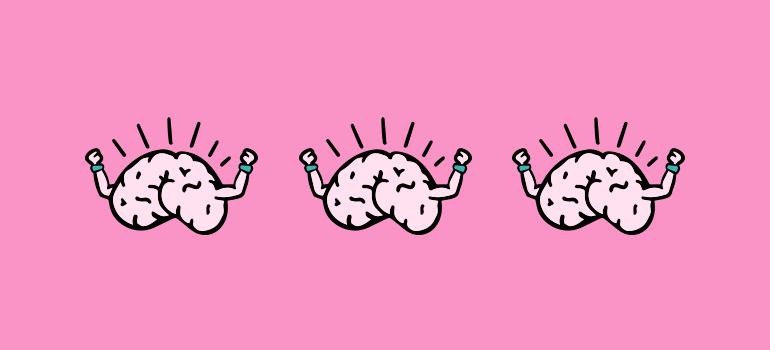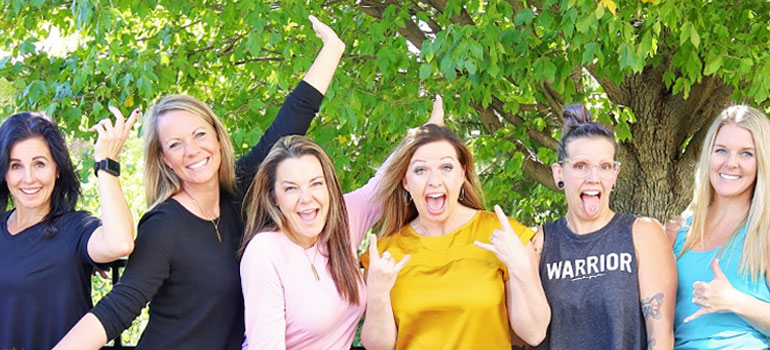How to Be Vulnerable and Deepen Your Connections with Others
Being vulnerable does not mean you are weak. Believe it or not, being vulnerable actually is a sign of strength.
I can tell you by many of my failed relationships, ones that I still feel unfulfilled in, that I was not good at communication.
It’s not because I’m not good at saying what’s on my mind. I can do that. I’m really not good at saying what’s on my heart.
To meaningfully communicate with someone, you need to be fully open and honest with yourself about your feelings.
I’ve always repressed most of my feelings, especially if I was feeling sad, hurt, angry, vulnerable, or any other emotion other than the socially acceptable positive and upbeat.
In fact, I had a hard time even admitting to myself when I was unhappy.
I felt weak even thinking about my sadness, hurt, or anger.
So, if I couldn’t address my feelings to myself, how could I tell someone else how I was feeling?
Express Yourself by Sharing!
Often I’m unable to express my feelings because I don’t want to admit to myself that I feel any way other than good.
I wanted my actions to only reflect my good feelings. I would repress my sadness or hurt until it would explode inside me and take everyone out around me in the aftermath. The people left standing in that rubble after were usually those closest to me, my close friends and family.
It takes honesty to be vulnerable and explore your feelings. It takes courage to feel your feelings as they are. Real honesty is not pretending that your feelings are other than what they are.
When you’re honest with yourself you can then be honest with others.
You unlock the truest kind of love (love from others and love of self) when you are honest and non-judgemental of your emotions.
It becomes easier to act with love when we understand and recognize our fears in each situation and relationship. It becomes easier to act with kindness when we acknowledge and feel our anger. And we can respond with joy, real joy, only when we accept our sadness.
People aren’t seeking to know you as just a happy face, they’re yearning to know your heart. The only way to create meaningful and lasting relationships is through an open, honest, vulnerable heart.
Vulnerability is a true strength of the heart.
How Vulnerability Is Strength

Vulnerability is strength and one of the best ways to deepen relationships and build meaningful connections.
Without vulnerability, relationships are weak. They lack the depth necessary to fully lift you to your highest self. I’ll explain.
Let’s say you have decided to live a healthier life. You want to eat healthier, move more, and sleep better.
In weak relationships, you tell your friends and family just that. You stay on the surface, sharing the “what” of your desires. It’s risky to tell them more, they might see you fail.
In weak relationships, ones that don’t allow you to be vulnerable, it is hard for your friends and family members to adequately support you. They can only remind you of what you want to do.
Be Vulnerable!
In vulnerable relationships, you tell your close friends and family that you long for a healthier lifestyle because you want to be in the pictures with your kids, you want to participate in family outings, you want to feel energized waking up each morning and ready to work on that project you’ve been excited about, you want to get sick less often, feel confident going out in public in your own clothes, and you want to use each day to make the world a better place.
You are vulnerable and voice your fears. You tell them that you are scared you might not ever lose all the weight you want to, you are scared you are too weak to resist food temptations.
You tell them that you are scared of what people will say or think about you for changing. And, then you tell them you are sad, angry and embarrassed that you ever let yourself get to this point.
You are angry that you’ve missed out on all that you have. You are sad that your kids are missing mom in all those photos of them growing up.
And you are embarrassed to run into old classmates when their eyes wander down your body and you can feel their judgment of the way you “let yourself go.”
In vulnerable relationships, you give your family and friends the opportunity to know your heart. This is strength. Because from strong relationships comes strong support. In knowing your fears, they can be there with you to navigate them. Know WHY they can remind you of what you are doing and why it will be worth it.
And when they remind you of your worth, you will know it is true because you have opened your heart to them.

How To Be Vulnerable
Being vulnerable doesn’t come naturally. This is understandable, considering no one wants to put themselves out there to be judged, ridiculed and hurt. But the truth is, it’s necessary. We’ve got to know our worth and believe in ourselves enough to do just that.
Try these 5 tips on how to be vulnerable to help you begin to strengthen your relationships through vulnerability.
Tip 1: Speak Up About Your Needs
People don’t “just know” what you need. Humans aren’t mind readers. Do yourself, and those around you a favor and spell it out for them.
Say what you need.
It’s tricky at the beginning to begin asking for what you need, so start small.
For me, this was asking for 5 minutes. I was always uber overwhelmed the minute my kids would come through the door after school like cavemen (and women).
They’d fling shoes, drop books and bags and hats and mittens and coats and wrappers in a trail from the door and into the kitchen for a snack. It was maddening!
So, I asked for 5 minutes. I asked them if they could give me the first 5 minutes they are back home from school. I asked them to set the timer on the stove, then spend that little sliver of time collecting their things, setting out papers I needed to see, pairing shoes, hanging coats, and putting their bags and books in their rooms before they came to the kitchen to fix themselves a snack.
Tip 2: Trust Your Strength To Accept The Outcome
You are strong enough to deal with the outcome. You are strong enough to accept the feedback and stay in hard conversations to strengthen your relationships and build connections.
Leave your expectations out of it.
If you are met with a hurtful response, backlash, or a disappointing answer, you can work through it. But you can’t work on anything if it’s never put out in the space to work on it.
Tip 3: Share Your Struggles With Others
Have you ever heard that a problem shared is a problem halved? Sharing with others lets them carry some of the load to. You don’t have to carry around your troubles and the troubles of others, sometimes strength is asking for help.
Sure you can argue there are problems that just can’t be shared and halved. You can’t tell someone you’ve been diagnosed with an illness and give them half. But, you can help them understand your fears, concerns, and questions. … and maybe they’ll be able to ask the questions when you can’t.
Tip 4: Notice When You Resist Your Own Feelings
To be vulnerable, you’ve got to notice what you are feeling.
Does your mother’s comment hurt you? Say something.
I have learned, over time, that people don’t often say things to be hurtful. But a lot of what people say does hurt. So I’ve started noticing that my insecurities have a lot to do with how I interpret feedback from others.
Lately, when I’m hurt or feel belittled by a comment, I say so. I use the phrase “I don’t think you meant for me to take what you said like (insert how you interpreted their comment), but I did.”
Almost always, you’ll find a new layer of conversation to be had in which you are both growing in your relationship and strengthening the understanding between you.
Tip 5: Throw A Written Tantrum
Feeling WAY too vulnerable to open up? Here’s permission to throw a tantrum like an unfiltered 4-year-old.
Every nasty thing you are saying to yourself, the way you are feeling and everything that’s about to boil to the surface goes on paper.
Then, read it and identify the lies you are telling yourself. Most of the time, we make up these stories in our heads about how awful we are and how terrible our situation is.
The story we are telling ourselves is often less in line with reality than we think. Look closely at the story you are writing in your head. Where does it come from?
Being Vulnerable Equals Strength
Vulnerability is tough. It leaves us open to the unknown.
But it also opens the door to your heart, to let someone in to join you, in living a life that is authentic.


